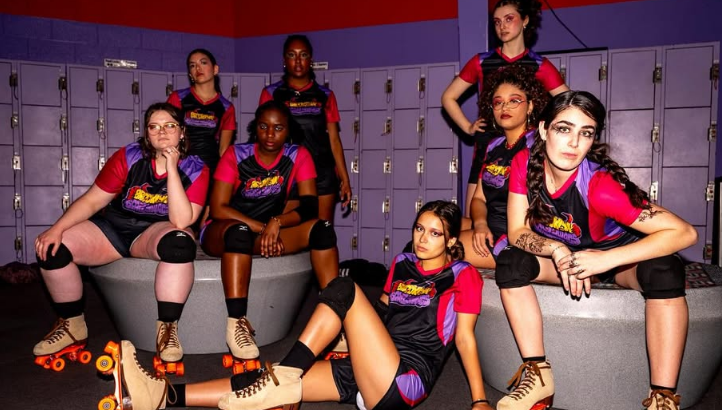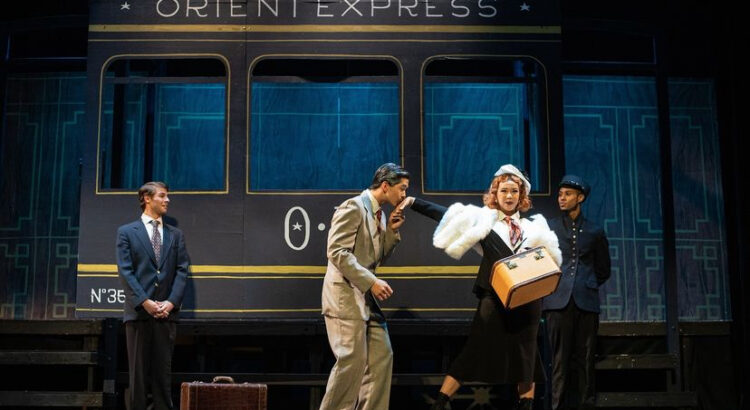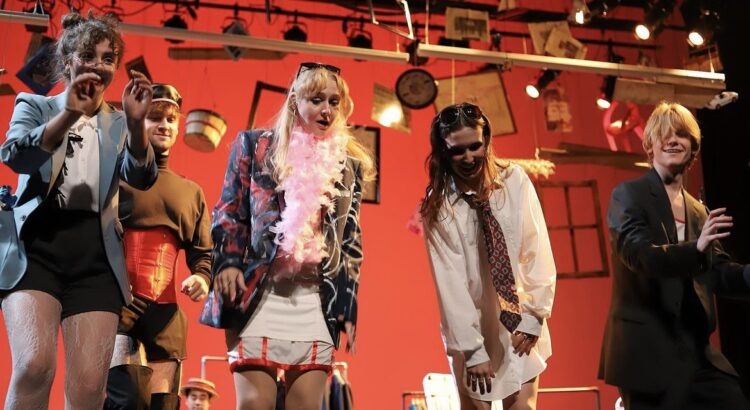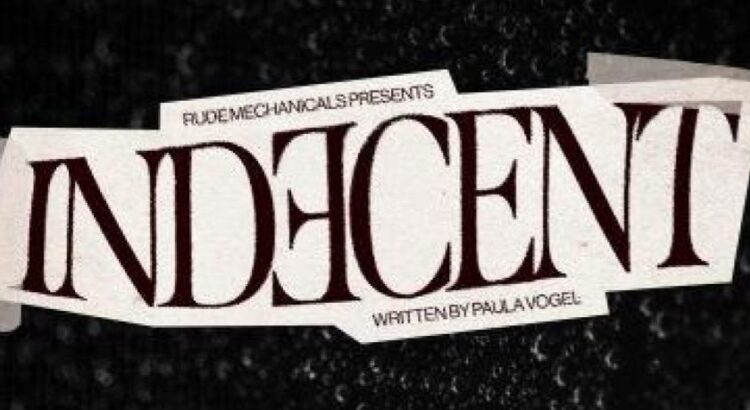As I settled into my seat at the Arthur Miller Theatre, little did I know that I was about to be whisked away into the adrenaline-pumping world of roller derby, a world I had never explored before. Enter the Rude Mechanicals and their electrifying production of For the Love of (or, the Roller Derby Play), which proved to be a dazzling spectacle that captivated from start to finish.
The Rude Mechanicals team assembled a seamless fusion of sets, costumes, hair, and lighting, each working harmoniously to transport this newbie into the vibrant, gritty world of roller derby. The dazzling costumes and imaginative set design were like characters themselves, imbued with the essence of the sport and its audacious players.
And then there was the derby choreography, wow! The energetic sequences dazzled with their exhilarating pace, brilliantly captured the sport’s chaos and thrill while presumably being far safer than the real thing. The cast flew around the stage with infectious energy and precision, making the audience feel as if we’d dropped into a match on the fast track.
Before the show, audience members were given team flags, stirring up competitive spirit and encouraging us to root for our favorite characters, which is a thrilling addition. This electrified the atmosphere, resulting in a lively yet respectful crowd. Imagine an audience fully engaged, mouths agape, eyes wide, and hearts pounding, not because of a stray Instagram scroll, but because the performance demanded it.
However, every fierce jam (that’s a roller derby term I learned) has its slip-up, and here, the plot’s initial momentum veers off course. The script begins as a captivating ensemble piece, weaving the members’ stories like a taut team flag. Yet, it falters towards the end of act one, turning towards a singular storyline with a sapphic love triangle. This divulgence from the derby isn’t necessarily bad because sapphic love isn’t relevant to the story, but it dilutes the broader message of empowerment and unity within roller derby, which is what the story initially offers as you get to know the characters in the first act.
Despite this narrative detour, the cast delivered stellar performances. The actresses portraying Lizzie Lightning, Sophia Santos Ufkes, and Andrea the Vagiant, Sarah Josephina Hartmus, stood out, their portrayals embodying fierce athleticism and vulnerable emotion that provided nuanced reflections of the roller derby spirit, and their complicated characters.
For the Love of (or, the Roller Derby Play) invited me into the intense, enthralling world of roller derby with Rude Mechanicals at the helm—definitely a production to be experienced. While I left with a major issue with the script, the overall excellence of the production remains undeniable. No matter the jam, in the rink, you’ll find your way through.














